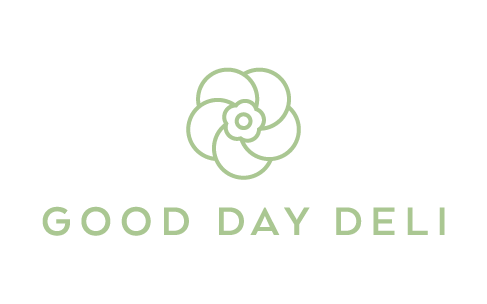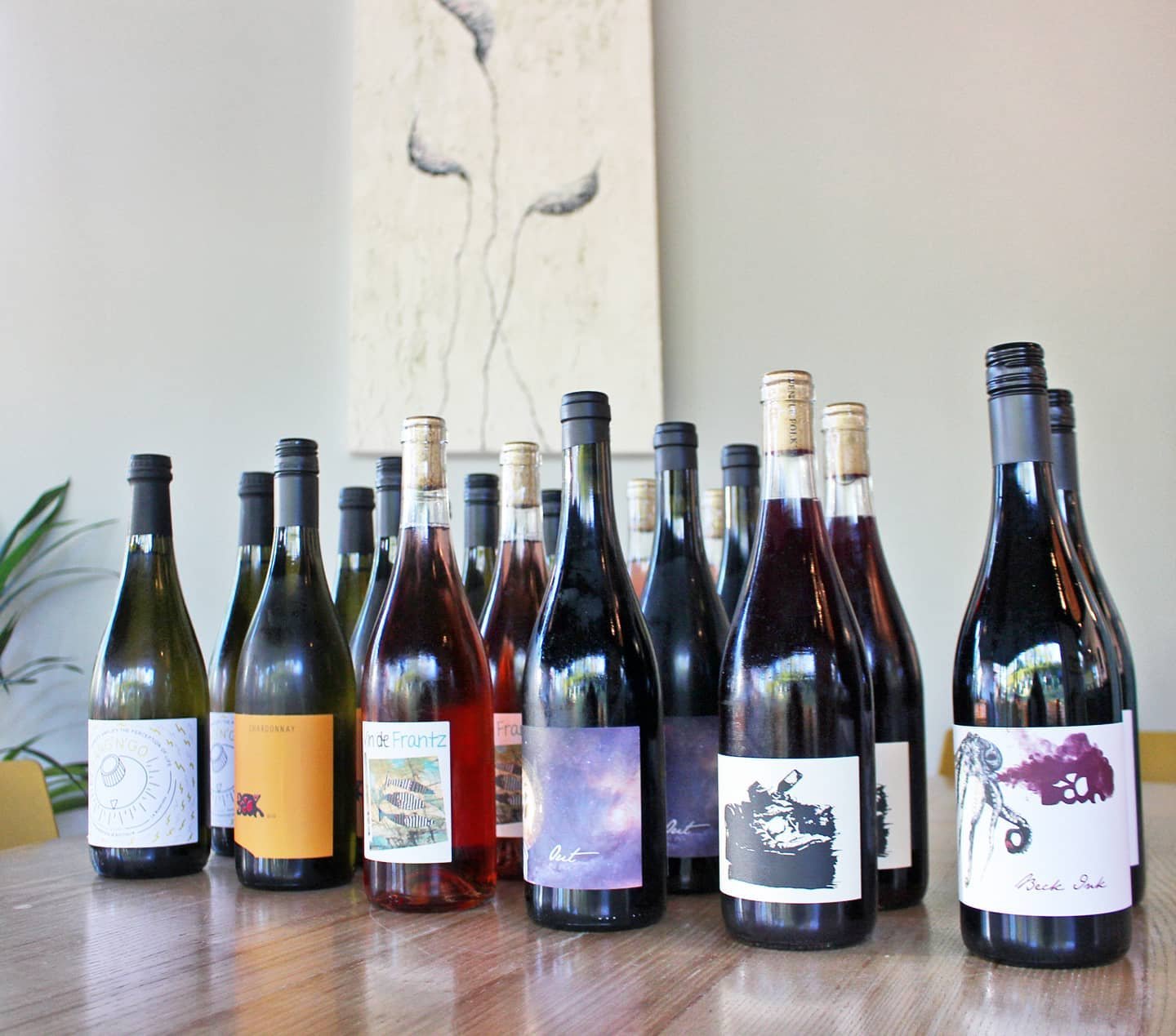Aisling Costello, Jan 2022
At Good Day Deli we are committed to supporting production methods that minimise their impact on the environment, and that doesn’t end at the local and organic produce that we use in our dishes. All of the carefully selected wines on our beautiful wine list are natural or certified organic, biodynamic or all of the above.
But what is a natural wine and how does it differ from commercial wines? In short, natural wines are wines created with very low intervention, nothing added and nothing taken away. These wines are at their core, simply fermented grape juice. While natural wines are becoming more and more trendy and artisan it is important to know that this is not a new way of making wine. In fact it is the oldest production method of wine, being given a renaissance by contemporary wine makers who are interested in the history of viticulture and who place the conservation of the soil, vines and integrity of the grapes at the fore.
Natural wines contain no added acids, sugar, tannins or chemicals and little to no added sulphur. These wines are unfiltered, so the natural yeast and microbes from the fermentation process remain. Natural wine differs greatly in this way from commercial wine, which can contain up to 72 additives - none of which are required to be labelled on the bottle. It is also important to remember that there is no such thing as a sulphate free wine as some sulphites are formed by the natural yeast during fermentation. Of course, this means that natural wines sometimes can taste quite different to the tenner bottle you might grab from the shelf in the supermarket.
Natural wine’s flavour profiles are often pouring with a bright acidity, giving them a fresh and vibrant taste. As our friend and mentor Colm McCann; head sommelier in Ballymaloe house and our point of contact with our amazing supplier Le Caveau would say, with natural wines they really do taste alive! There is usually some individuality between bottles of the same wine and sometimes what some might call “imperfections”, but these differences are truly an expression of nature and should be embraced with a sense of adventure. Natural wines are usually created by one passionate individual and small scale independent growers in close connection with nature, each bottle is like a little love letter from the vineyard to you.
Organic viticulture is a system that is aimed at omitting man made compounds in farming such as synthetic fertilisers, pesticides, fungicides and genetically modified produce. It focuses on prevention rather than cure - the principles of this type of farming include canopy and soil management. Organic viticulture and biodynamic farming go hand in hand, biodynamics is the idea that what you take from the earth you must put back in some way - a symbiotic relationship between farmer and the land. These two principles of wine making increase biodiversity, soil structure and nutrient content and cultivate stronger microbial activity and root growth. In short the farmer, soil, environment and customer all benefit!
Our stunning natural wine list has been carefully curated to uphold the beliefs of Good Day Deli and pair beautifully with our winter menu. Having one wine of each colour ensures you that it has been rigorously hand picked by us and makes the choice easy for you! My personal favourite is our red wine; “Out” by Judith Beck, an amazing natural winemaker who follows the principles of biodynamics and organic viticulture closely and cares deeply for the health of the vines. She uses herbal remedies such as growing stinging nettle around the vines to ensure soil health and to ward off pests. Beck’s vineyard is in Burgenland, the most easterly part of Austria on a family estate of 20 hectares. She focuses on the traditional Austrian grape varieties, many of which had fallen out of favour with commercial wine production and breathes new life into them with her dynamic and delicious wines. Out is an amazing blend of 60% Blaufränkisch and Zweigelt grapes and presents a bright and juicy red wine which ends with spiced and savoury notes. A perfect pair with the Big Reuben Burger, Huevos Rancheros or our Te Mata Sharing Board, the bright acidity cutting through and complementing the rich, savoury flavours.
If you’re looking for something celebratory our beautiful pet nat (Pétillant Naturel, natural sparkling wine) is also by Judith Beck. “Bambule!” dances across the palette. A pet-nat is a fabulous and authentic sparkling wine, with no additives and not pumped with CO2 that gives you the aggressive bubbles of a prosecco. The light and natural bubbles are more akin to something like a kombucha, and the perfect palette cleanser. Each year the grape varieties change in “Bambule!”, this year the blend is 70% Muskat Ottonel (a 19th century crossing produced in the Loire from Chasselas and Muscat de Saumur) and 30% Neuburger. This beautiful fizz is a dry wine with gorgeous herby notes and is perfect with our Hibiscus Poached Pear Pancakes for an special brunch treat, and complements the caramelised apples and whipped Ardsallagh goat’s cheese on our Kia Orana Apple Bruschetta perfectly.
Our specially selected white wine is 100% pinot blanc grapes, hailing from the amazing producers at Domaine de l’Achilée in the renowned wine region of Alsace in eastern France, where the Dietrich family have been farming their land since 1600. In 1999, they converted to entirely organic and biodynamic viticulture. Achilée is the French word for yarrow, which is a plant very useful in biodynamic farming that grows on their vineyard. This beautiful zesty white wine is lively on the palette and exudes bright notes of yellow fruit and white pepper, the perfect match with the delicate flavours of our lightly battered hake in the Kai Moana Fish Tacos. The vibrant acidity of this wine goes beautifully with the creamy labneh and subtle spices of our Winter Fritters.
For something very special and different, why not indulge in a glass of Voria Rosato Pet Nat? This beautiful, cloudy rose coloured pet nat is made from the little known Perricone grape on the Porta del Vento vineyard, overseen by Marco Sferlazzo in Camporeale, Sicily who follows a non-interventionist approach at the winery. This lively pet nat is refreshing and delicious with notes of strawberry, raspberry and grapefruit with a citrusy kick. This beautiful wine gets its hazy appearance from being unfiltered, giving it its unique and exciting character. A vibrant wine, it’s beautifully paired with rich flavours such as the delicious GDD Smoked Beetroot Benny.
Last but certainly not least, we have an interesting red wine which illustrates the innovation, comradery and cooperativeness of the natural wine community. The Big Bunch Theory Fresh Impression Rouge is a blend of grapes that producer Patrice Béguet sourced from biodynamic viticulturists after much of his own harvest was ravaged with frost right before the harvest. The Fresh Impression rouge consists of 60 % Grenache Noir from Claude Ughetto (Provence) - 30% Gamay from Domaine Landron Chartier (Loire-Atlantique) and 10% Ploussard, from Patrice's vineyards. Lively notes of red berry and cherry with a smokey characteristic and mineral edges match beautifully with the GDD Buddha Bowl.
So why drink natural wine? Because it’s bringing wine making back to basics, embracing the rich history of viticulture and preserving the integrity of the grape, the soil and the passion of these winemakers. And happily, because of their low sugar and sulphite content, natural wines can actually be less harsh on the body (i.e: less of a hangover if you overindulge!). Don’t be afraid of the sediment, it’s an integral part of natural wine and it will put hairs on your chest. Once you go natural, you never go back!

















































